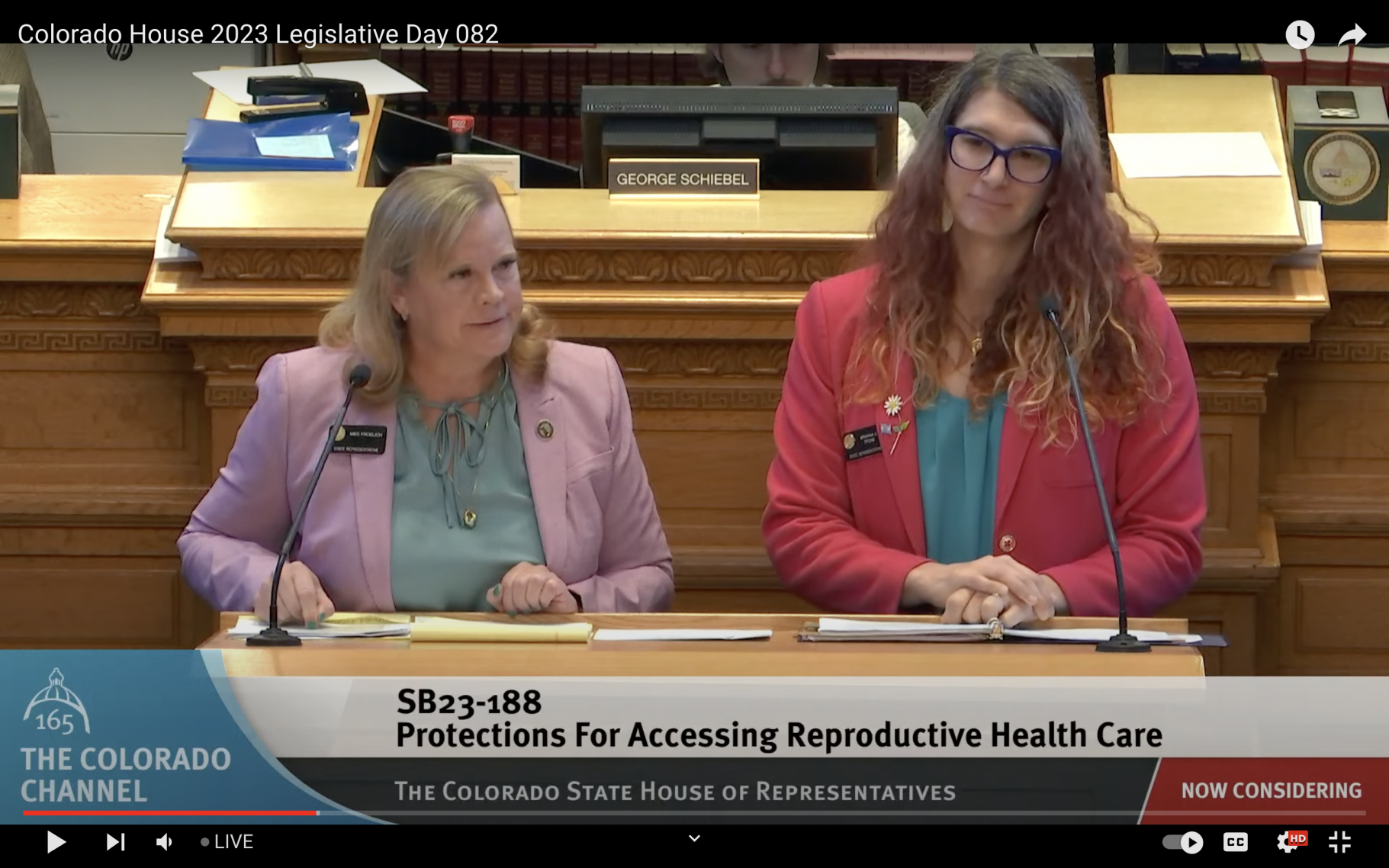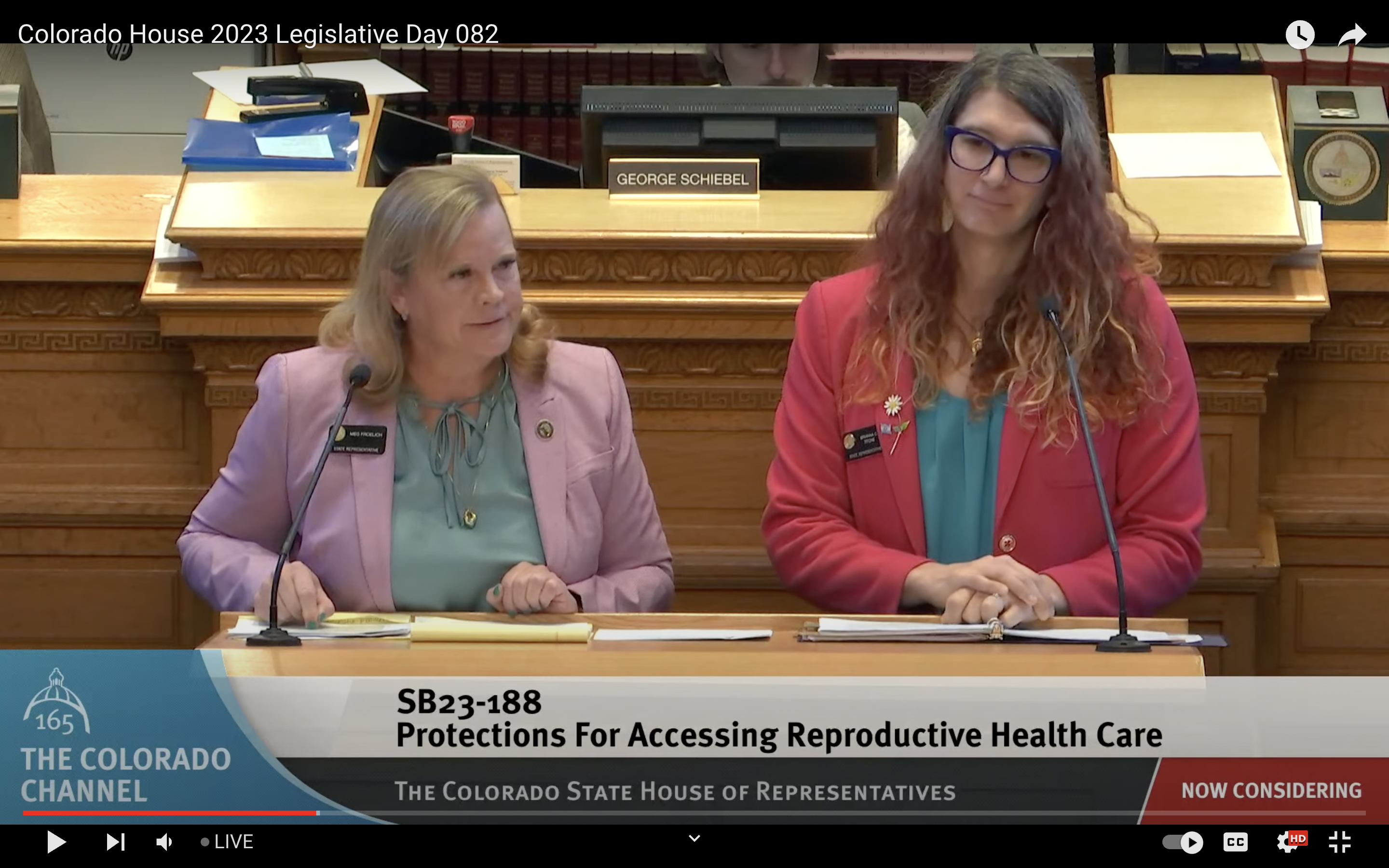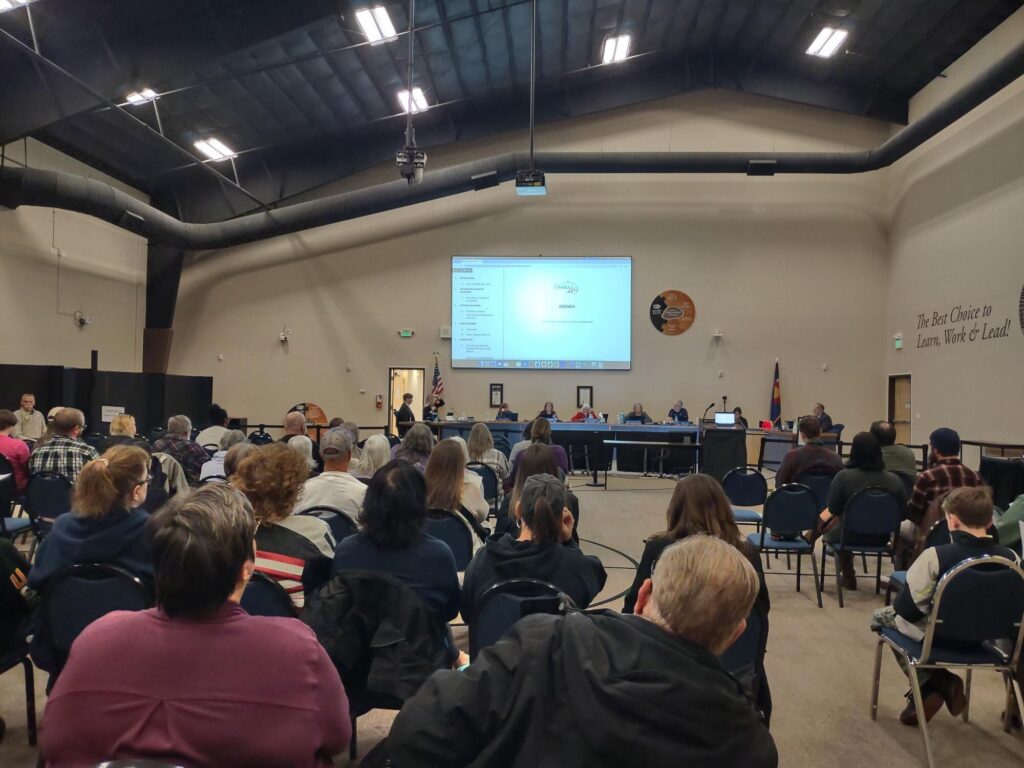Colorado Democrats move to shield abortion, transgender care from out-of-state penalties

Democrats advanced a bill Friday to protect Colorado abortion patients and providers from facing consequences from other states in which abortion is illegal – the second of three bills seeking to strengthen abortion rights in Colorado.
Senate Bill 188 would prohibit Colorado from recognizing criminal prosecutions or civil lawsuits regarding legally protected abortion care and enshrine into law an executive order directing state agencies to withhold relevant records from such states. The bill would also apply to gender-affirming care for transgender individuals.
SB 188 passed the Senate last week. In a voice vote, House lawmakers advanced the bill to its third and final reading, scheduled for Saturday. The bill is expected to pass along party lines, be sent back to the Senate to approve any changes, and then to Gov. Jared Polis.
Since the Supreme Court overturned federal abortion rights in June, 14 states have passed laws banning or limiting abortion, with many more currently trying to enact blocked bans. States including Texas, Idaho and Oklahoma have passed “bounty hunter” laws, incentivizing citizens to sue anyone who has helped a person get an abortion.
“It is a chilling scenario across America and you know what? Not here,” said bill sponsor Rep. Meg Froelich, D-Englewood. “We are going to protect patients, providers and helpers in Colorado because this is legally protected health care.”
Proponents of the bill champion Colorado as the “last line of defense” for abortion rights. In January, 750 people traveled to Colorado Planned Parenthoods from out of state for abortion care – compared to only 1,500 people in all of 2021, according to Planned Parenthood of the Rocky Mountains.
Opponents argue that the bill disrespects the laws of other states, saying even if people travel to Colorado for abortion care, it could violate their home state’s law. For example, a patient gets abortion-inducing medication from Colorado then takes it in their home state where abortion is illegal.
However, the majority of Friday’s debate centered on the bill’s protections for gender-affirming care.
Gender-affirming care includes social, psychological or medical interventions for transgender individuals, such as hormone therapy and surgical procedures. Around 30 states are considering legislation to ban or limit gender-affirming care in 2023.
“Many states are saying, ‘No, this goes too far.’ Are all those states in the union wrong? The answer is no,” said Rep. Richard Holtorf, R-Akron. “In my humble opinion, there should be a prohibition from these sex transition procedures to minors.”
Proponents of the bill said 29 leading medical organizations have recognized gender-affirming care as medically necessary, including the World Medical Association, American Psychological Association and American Academy of Pediatrics.
They also pointed out that, while most out-of-state bills seek to prohibit gender-affirming care for minors, states such as Kansas, South Carolina, Oklahoma and Texas introduced bills to ban care for people up to 21 and 26 years old.
“They are, in fact, absolutely wrong,” said Rep. Brianna Titone, D-Arvada, the bill’s other sponsor and Colorado’s first openly transgender state lawmaker. “Why can’t we just exist?”
She added: “I wish that the lawmakers in these other states would trust the people to do what’s right and best for themselves in consultation with their physicians, but this is what it’s come to.”
The bill’s advancement came on International Transgender Day of Visibility, which Democratic lawmakers celebrated with a tribute shortly before the debate began.
Lawmakers also debated the bill’s constitutionality, after a legal opinion released Thursday indicated that the bill may violate the state’s single-subject rule. The bill title concerns reproductive health care, but it legislates gender-affirming care that is not included in the bill’s definition of reproductive health care.
To address this, sponsors amended the bill Friday to include gender-affirming services in the reproductive health care definition.
While Democrats said the omission was a mere drafting error, Republicans called the amendment an “inappropriate” and “desperate” change. Minority Leader Mike Lynch, R-Wellington, said the constitutionality of the bill is still “shaky at best.”
“This bill went through two committees and the Senate unconstitutional,” Lynch said. “This is really two different bills, this stretch of the definition tries to shove it into being constitutional, but this is not good legislation, this is not good governance.”
Democrats defended including gender-affirming care in reproductive health care, saying it often affects a person’s reproductive ability. Titone also said the two topics are in one bill because “they involve the same medical professionals, are being targeted by the same actors, and are all about bodily autonomy.”
Republicans introduced 14 amendments Friday seeking to weaken the bill, and a motion to send the bill back to committee. None of the efforts passed.
Friday’s debate was limited to six hours after Democrats invoked Rule 14. The previously little-used debate restriction was also used during Thursday’s abortion debate and last week to shut down the Republican filibuster on a package of gun control bills. All Republicans voted against limiting the debate on Friday, in addition to three Democrats: Rep. Elisabeth Epps of Denver, Rep. Mary Young of Greeley and Rep. Matthew Martinez of Monte Vista.
SB 188 is part of a package of bills seeking to strengthen abortion rights. The other two are Senate Bill 190 to crack down on the operations of crisis pregnancy centers and Senate Bill 189 to require health insurance carriers that serve large employers pay for abortion coverage.
SB 190 passed its second House reading on Thursday and SB 189 is scheduled for its second reading on Friday. All three bills are expected to face their third and final reading on Saturday.














